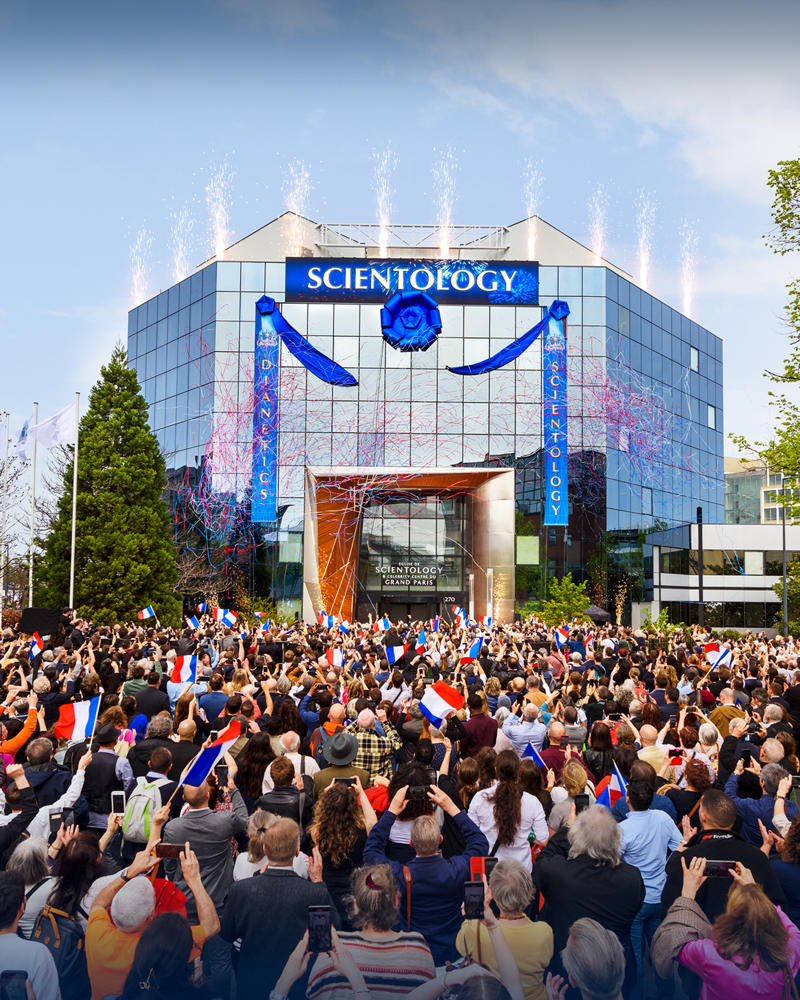Scientology in Popular Culture: Depictions and False impressions
Scientology in Popular Culture: Depictions and False impressions
Blog Article
Debunking Myths: Dividing Fact From Fiction Regarding Scientology

Beginnings of Scientology
The origins of Scientology trace back to the mid-20th century when L. Ron Hubbard, a sci-fi writer, established the idea system in the 1950s. Hubbard's advancement of Scientology stemmed from his earlier self-help system called Dianetics, which he introduced in the 1940s - Scientology. The transition from Dianetics to Scientology marked a change towards an extra extensive spiritual ideology that incorporated elements of psychology, Eastern spiritual customs, and Hubbard's own theories on human presence
Hubbard's expedition into the human mind and spirit caused the creation of Scientology as a faith centered around the principle of spiritual knowledge and self-improvement via a process called bookkeeping. Auditing, a kind of spiritual counseling, intends to assist people get over psychological and emotional obstacles, referred to as engrams, that impede individual development and awareness.
As Hubbard's teachings obtained appeal, Scientology developed into a worldwide activity with a substantial following. Regardless of debates and criticisms bordering its techniques and ideas, Scientology continues to attract followers seeking spiritual satisfaction and individual growth.
Core Ideas and Practices

An additional essential aspect of Scientology is the principle of the Thetan, the spiritual essence of an individual that goes beyond the physical body. Followers intend to comprehend and reinforce their link to the Thetan via different techniques such as research courses and filtration routines.
The Church of Scientology likewise places a strong focus on the importance of personal duty and the belief that individuals have the power to form their own fates. Through adherence to honest guidelines and the quest of self-improvement, experts of Scientology aim to attain higher levels of joy, success, and spiritual fulfillment.
Controversies and Criticisms
Among Scientology's core beliefs and methods exists a landscape marked by conflicts and objections that have actually sparked extreme discussion and scrutiny. In addition, Scientology's status as a tax-exempt spiritual organization in some nations has been a point of contention, with doubters arguing that its techniques are more comparable to a service than a religion.
Another location of dispute surrounds the Church's therapy of dissenters and doubters. find here Records have arised of harassment, intimidation, and legal risks guided at those that talk out versus Scientology. This has actually elevated issues regarding free speech and the company's dedication to openness and responsibility.
While Scientology has actually emphatically denied several of these accusations, the objections and disputes bordering the Church remain to sustain public hesitation and scrutiny.
Scientology's Influence in Culture
Scientology's impact extends to the world of psychological health and wellness, where its sights on psychiatry and psychology have actually stimulated discussions within the medical area. In the realm of entertainment, Scientology's association with high-profile celebs has brought attention to the religious beliefs, both positively and adversely. The involvement of renowned numbers in Scientology has, in some instances, served to promote the religious beliefs, while in others, it has attracted criticism and raised questions about the church's beliefs and practices.
Debunking Common Misconceptions
What misconceptions concerning Scientology are commonly held and exactly how can they be disproved? One common mistaken belief regarding Scientology is that it is a cult. Nevertheless, the Church of Scientology is legally recognized as a religious beliefs in numerous nations, including the USA, where it has tax-exempt condition. Like various other faiths, Scientology offers spiritual assistance and techniques for its members.
An additional false impression is that Scientology requires its members to cut connections with their households. Actually, the church emphasizes the importance of household connections and motivates members to keep healthy and balanced connections with their liked ones.

Final Thought
To conclude, it is vital to separate truth from fiction when talking about Scientology. By examining its beginnings, core ideas, disputes, and impact in culture, we can disprove typical false impressions surrounding this faith. It is crucial to come close to the topic with a unbiased and crucial state of mind in order to recognize Scientology precisely and without bias.
Rooted in a foundation of spiritual enlightenment and individual growth, Scientology's core beliefs and techniques encompass a varied array of principles and routines. Central to Scientology is the idea that human beings are immortal spiritual beings who have actually neglected their true nature. The participation of well-known numbers in Scientology has, in some instances, offered to popularize the faith, while in others, it has actually drawn objection and raised inquiries concerning the church's ideas and methods.
The Church browse around this web-site of Scientology is legitimately acknowledged as a faith in many nations, including the United States, where it has tax-exempt standing. Like other religious beliefs, Scientology provides spiritual advice and practices for its participants.
Report this page